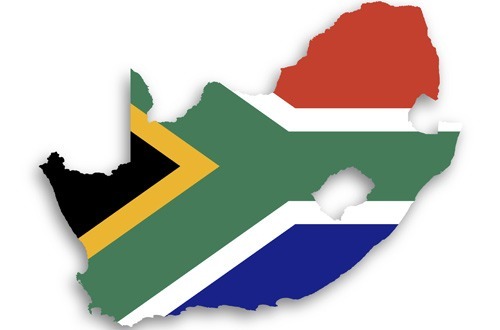Vumela, a fund managed by FNB and Edge Growth, has recently acquired a stake in Mobenzi, a mobile first technology company enabling greater efficiency in deploying donor funding to global social impact programmes.
The investment in Mobenzi is a R16 million equity investment.
Mobenzi has developed scalable and configurable mobile technology platforms for frontline workers in over 40 countries in health, education, research, agriculture and other sectors.
The use of Mobenzi software empowers them to add significant value to their underserved communities, and informs the decision makers with accurate, verifiable and real time data.
Kevin Blignaut, investment principal at Edge Growth, said that Vumela has partnered with Mobenzi due to the strong investment fundamentals and the talent, drive and dedication evident in the founders to build a company focused on delivering global impact.
“The team at Mobenzi have built an SA-based company creating both local and international impact and is motivated by a “not only for profit” philosophy, which comes through in their attitude to work and their strategic partnerships,” he said.
According to Edge Growth, there is increased focus on more efficient deployment of donor funding to social impact programmes.
This, combined with the inefficiencies of using paper-based solutions, and the ubiquity of mobile devices worldwide, make mobile solutions ideal for community based frontline workers.
Andi Friedman, CEO of Mobenzi, added: “What really attracted us to Vumela is that we weren’t just looking for venture capital to grow our business. We were looking for a partner who is fundamentally aligned with our impact philosophy and was interested in more than just the bottom line.”
“Although we managed to grow to a team of 20+ and reach profitability by bootstrapping – we knew that we needed funding and support to achieve our vision of becoming a global platform for the ICT4D sector. With the Vumela funding we plan to step up the investment in our core software platforms, primarily to enable organisations and implementation partners to configure solutions themselves, rather than relying on our team,” he said.
“Where we’ve developed specific solutions in health and education which have already achieved significant traction, we intend to strengthen and expand these further. We ultimately want to see our platforms empower tens of thousands of frontline workers and millions of beneficiaries,” he said. (via Asoko Insight)
City of Cape Town A Hub For Food And Beverage Manufacturing Sector – Deputy Mayor
The City of Cape Town has set itself the goal of establishing Cape Town as a forward-looking, globally competitive business city, deputy mayor Ian Neilson said on Sunday.
Cape Town already boasted some of South Africa’s largest food and beverage manufacturing companies, making the city a well-established hub for the sector, he said.
According to the city’s economic performance indicators (EPIC) report for the fourth quarter of 2016, this was one of the few manufacturing industries in Cape Town that had a positive trade balance. As such, the sector was also an important earner of foreign exchange for the city.
The city’s proximity to a vast and productive agricultural hinterland, an international port, a growing consumer population, and a relatively strong skills base made it a very competitive location in which to base food and beverage manufacturing operations, Neilson said.
“The city has set itself the goal of establishing Cape Town as a forward-looking, globally competitive business city, which is one of our strategic priorities in the organisational development and transformation plan. We will continue to build an enabling environment for economic growth and job creation and foster a climate that is conducive for doing business in the city.
“Exports by the food and beverage manufacturing industry have grown strongly over the past five years. This industry is also well placed to exploit the export opportunities that can be gained by a weak exchange rate. Additionally, the sector boasts the fastest growing employment rate out of all of the manufacturing industries,” Neilson said.
The food and beverage manufacturing sector was the largest manufacturing sector by output, recording the highest growth rates in gross value add (three percent) and employment (4.9 percent) over a 10-year period.
Further, employment in the food manufacturing sector grew strongly at 6.1 percent year-on-year for the second quarter of 2016; Atlantis was home to one of only three wheat biscuit factories in the world; a strong cluster of spice and saucing companies were based locally; and the country’s three largest seafood companies had their headquarters and main production facilities located in the city.
Cape Town was also home to two of the largest craft beer companies in the country; one of only two license holders for bottling and distribution of Coca-Cola products in South Africa was based in Cape Town; a number of newer high-growth soft-drink producers had their operations based there; and well established fruit juice manufacturers were also based in the city. (via African News Agency)
Sanlam Forks Out $329mln To Increase Stake In Morocco Insurance Group
Sanlam and Santam on Thursday increased their effective stake in Morocco-based SAHAM Finances by a further 16.6 percent, to 46.6 percent, for U.S.$329 million plus transaction costs after meeting all necessary regulatory approvals.
SAHAM Finances is an insurance group with operations in 26 countries across North, West and East Africa as well as in the Middle East.
It is one of the largest insurers in Africa, and the market leader in most of the countries in which it operates, with a network of 700 branches with more than 3000 staff.
The effective date of the transaction of Sanlam and its short-term insurance subsidiary, Santam, would be 10 May 2017.
The South African financial services group said the transaction was funded from internal cash resources.
Sanlam said the introduction of gearing to fund a portion of the acquisition consideration will be considered in due course as part of the Group’s continual capital management programme.
Sanlam and Santam first acquired a 30 percent effective stake in SAHAM finances in February 2016 with Sanlam emerging markets holding 75 percent and Santam 25 percent thereof.
Following the acquisition of a further 16.6 percent stake in SAHAM finances, Sanlam emerging markets will now hold 85 percent and Santam 15 percent of the total investment in SAHAM finances.
Sanlam emerging markets chief executive, Junior Ngulube, said this transaction confirmed the Sanlam Group’s commitment towards strengthening the strategic partnership further.
“Having identified strong synergies between the Sanlam and SAHAM Groups, we are committed to unlocking additional collaborations together through our collective skills and network capabilities across Africa,” Ngulube said.
“We believe this holds significant mutual benefits for the two groups and it will also benefit our stakeholders.” (via African News Agency)







